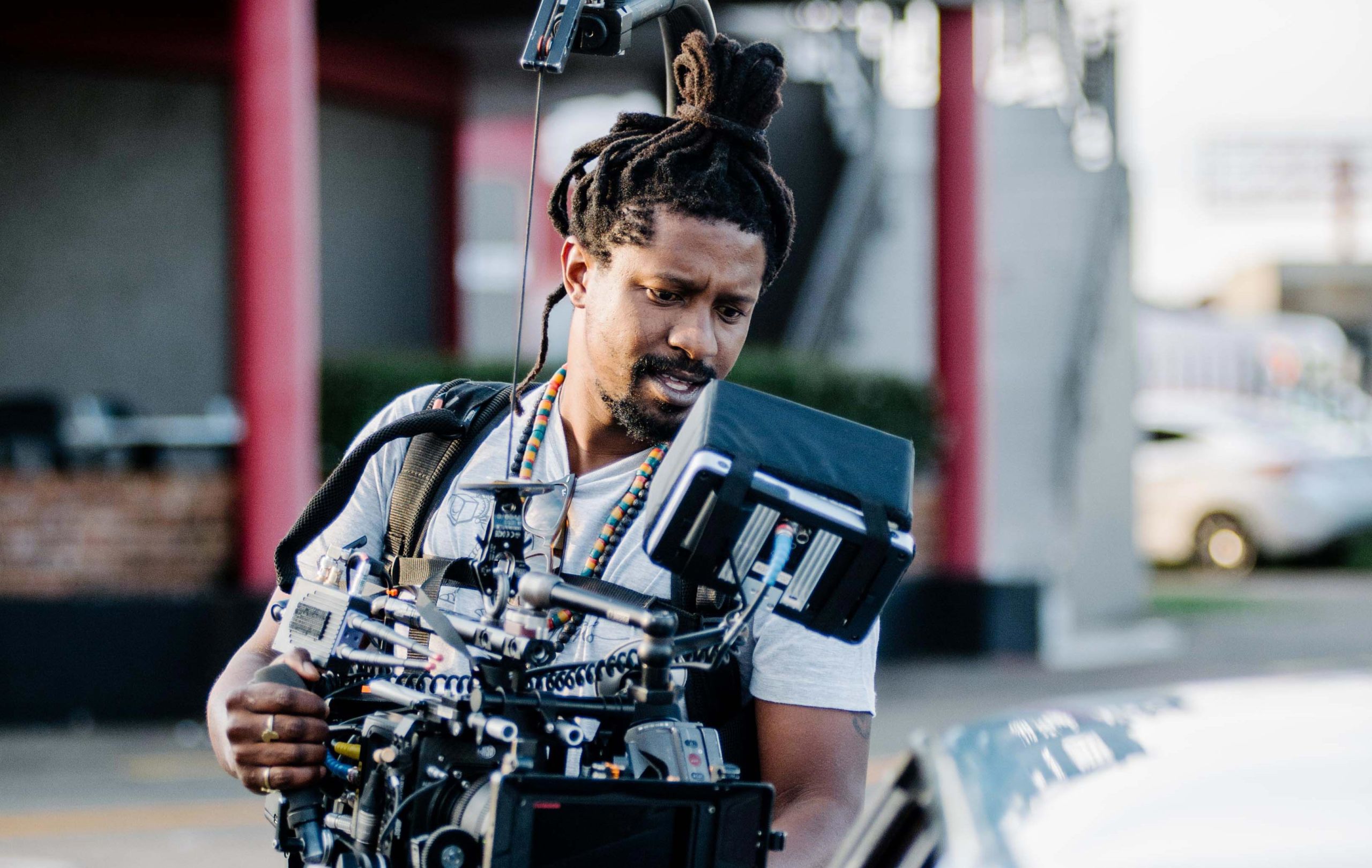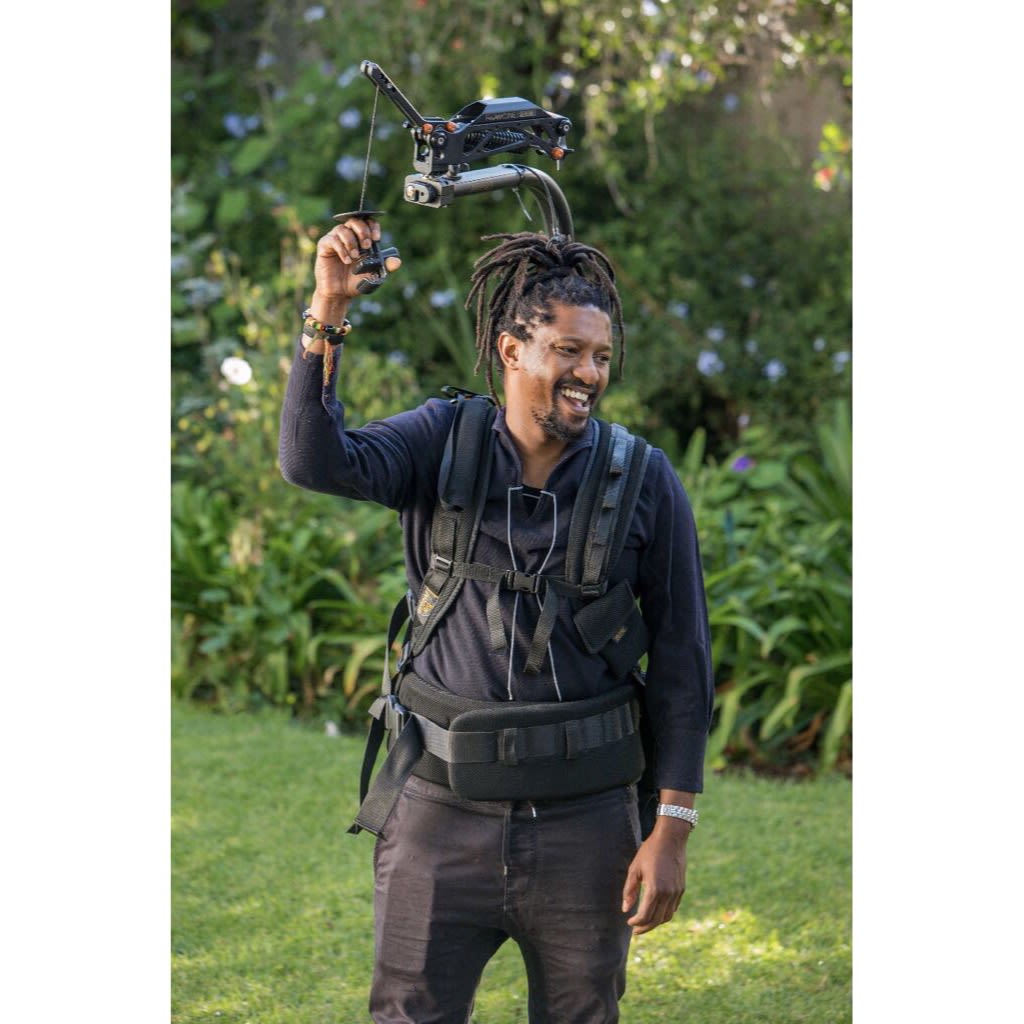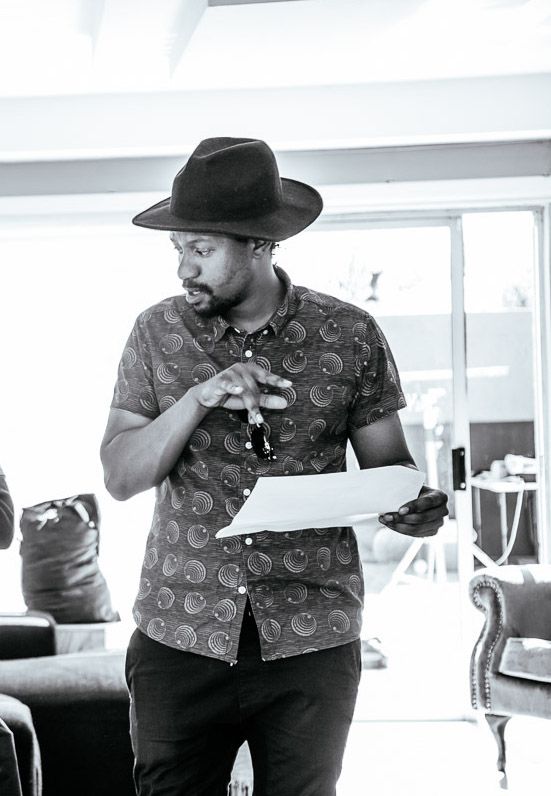Documenting Stories
One Stride At A Time With Motheo Moeng

Multi-award winning Cinematographer and Director of Photography Motheo Moeng is no stranger to achievement and accolades. Motheo’s first feature film titled ‘Skyf’ was released in Nu Metro cinemas in 2012. His second feature film ‘Thina sobabili’ won the Audience Choice Award at the PAN African Film Festival in Los Angeles and at the Jozi Film Festival in his home country. The film was selected as the South African entry for the 88th Academy Awards.
We had the pleasure of sitting down with Motheo to discuss how he has continuously raised the South African Flag in the film and photography Industry in South Africa
Q1. You grew up in Gugulethu, Cape Town. Tell me a bit about your childhood and what was it that sparked the creative hunger that led to your career choice?
My childhood was never creative, it was sportier. My role models were sportsman and soccer players specifically. Creativity came at a later stage for me as I was never directly exposed to it.
Q2. I’ve read that you fancy yourself quite a football player, and it’s something that you would have pursued if you hadn’t discovered your love for cinematography. How/Why do you think/believe that sport (in general) is so important to children? (Development/Confidence etc.)
Growing up all i ever imagined for my future was being a Professional football player, i loved and played football for as far back as i can remember and I’ve carried over elements which i learnt in team sports and soccer into Cinematography today. I believe team sports specifically and sports in general play a vital role in the growth of character and forming fundamental characteristic about us.
Q3. You started out studying photography and then decided to focus on cinematography. Why the initial choice and subsequently the change/final decision?
I studied photography after high school at the National college of Photography which has now merged with Vega, the decision to study Cinematography came about because when i was about to finish at Photography school, I realized that I wasn’t ready to go out and start working in the industry and at that moment also not good enough so luckily my mother is extremely into academics we agreed that I go out and study further and that’s how I ended at AFDA studying film and majoring in Cinematography.
Q4. You were raised by you grandmother and mother. Do you think that this had an impact on your career choice? (Are either of them quite creative)?
I was raised by a very strict grandmother in Gugulethu who contributed so much to my formative years in teaching me discipline and respect, I later moved from Cape Town to Pretoria and lived with my mother who taught me the importance of hard work and consistency, these lessons I’ve found to be the most important tools to my career so far as a Cinematographer.
Q5. Your first film “Skyf” snowballed if you will, from a PSA (Public Service Announcement) into a feature film. How did the lessons that you learnt from that first film impact your future work?
Wow!!! what a crazy and vital time in my/our lives. 2010 a good friend of mine Lungelo Boogie Mdlalose had written a PSA about smoking because he was previously addicted to it but didn't have funding to make the film and then he linked up with another friend of ours Thapelo Mokoena who is a well known actor and Producer to come on board and assist to put together a team to make a film then Thapelo managed to convince his to grow the PSA into a 24min short film that grew into a feature film. the hustle, passion and commitment from these people filtered through to everyone else involved and we managed to put together a crew of young black people who had previously never been afforded the opportunity to even be HOD's in their various departments to now create a product they could all call their own.
So the lessons learn't on this project are priceless because they built my confidence and made me realise the possibilities were infinite and that with little resources we could do so much and because of this i was then able to make "Thina Sobalili" with Ernest Nkosi and other friends of mine again with little resources but lots of hungry/passionate young black people who just wanted to be counted and considered.
Q6. You’re a member of the South African Society of Cinematographers (since 2017). It’s obviously a huge honour to be a member, but what does it mean to you personally? And what do you hope/plan to achieve within the film industry by being a member?
One of the proudest moments of my career so far was receiving an email saying i've been invited to become a member of the society. Starting out it had always been a dream to have my name followed by those prestigious letters (S.A.S.C) because i had watched so many films by top international Cinematographers who were part of societies in their countries too. It was extra special as someone who had previously been part of a system that didn't recognize black artist and technicians and that year for the 1st time the society inducted to black Cinematographers. It's about time and it's only the beginning, i look forward to a time when these issues don't come as a shock and its issues that don't need to be mentioned or celebrated anymore and representation is a norm.
Q7. You’re also a SAFTA winner for Tjovitjo (2018). The show has been compared to Yizo Yizo because of the mirror that it places in front/of South African society. You seem to be drawn to helping tell these types of stories. Why do you think this is?
Tjovitjo is another one that has done so much for me and my career, the SAFTA is only the cherry on top. i shot the series with 2 other extremely talented Cinematographers over the period of 12 weeks were we shared 4 weeks each under the direction of Vincent Moloi who's vision for the series contributed immensely to the visual style of the series. The comparison the Yizo Yizo is insane because i still consider that to be one of the greatest TV series about a period in a country and culture anywhere in the world, so it's an honour. i find myself drawn to stories about culture and African stories in general because they a reflection of us and vital that they are told with nuance and understanding because narratives has longevity. African culture had always been represented by people who didn't explore/understand/respect it so it wasn't always authentic and now we are part of a movement and generation that can correct that.
Q8. One often finds that parents are more aligned (keen) to see their children in a business streamed career (something that they deem more stable). How were your mom and gran with your career choice (as a creative one) and what advice would you give parents and children who are interested in creative careers?
I owe so much of my life and career to my mother being open minded enough to take the risk and encourage something we all had no reference point off. One of the things she said to me was who do you know that does "This Cinematography thing" that looks like you and when i had no one to reference if made me realise that its now even more important so that i can serve as an example for future generations. She supported this dream with the condition that i had to make sure that i study whatever i wanted to do and get a degree in it.
So my advice to parents is that they should support their kids dreams with a watchful eye though as these institutions are mostly private and not government owned so their fees tend to be ridiculous. i also think a lot of it has to do with maturity as i had studied something else prior to going to film school so i knew its what i wanted to do.
Q9. You’re a part of Johnnie Walker’s latest campaign that highlights a number of talented South Africans who are a true inspiration in what they do. Be it swimming (Chad Le Clos), business, comedy (Trevor Noah) etc. What does being a part of a campaign such as this mean to you?
This came a little bit as a shock to me, the people in the campaign roles are clearly defined. I'm a behind the scenes kinda person who is happy where he is, so when i was asked to be part of the campaign i was reluctant at 1st because i had work with the Agency prior but as a Cinematographer until they mentioned they i would be required to be myself and represent the idea of moving forward and Keep walking which struck me as part of the motivation we always need and i guess the idea of being side by side with such great people with such diverse talents wouldn't hurt to.
Q10. What can we expect from you in the future?
Infinite possibilities, i'm currently shooting Africa's 1st Netflix original series which is pretty exciting with Genius creative/Director Kagiso Lediga whom i previously worked with on "Catching Feelings" and "Matwetwe", i'm also excited to work with the other director of the series Tebogo Malope whom i find extremely talented and has created already some iconic work.
the future is bright as i'm working on other films with people i've collaborated with in the past and people i'm yet to work with.
Follow Johnnie WalkerSA
@johnniewalkersa (Instagram), @johnniewalkersa (Twitter) and Johnnie Walker South Africa (Facebook) #KeepWalkingSA



